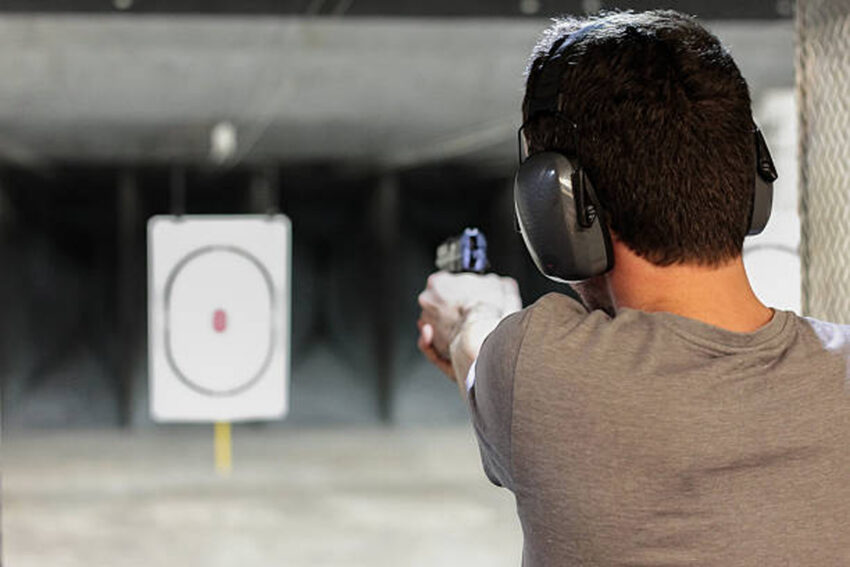Understanding the legal aspects of firearms safety training is essential for individuals in Maryland who wish to exercise their right to own and carry firearms responsibly. Maryland has specific laws and regulations in place to ensure the safe and responsible use of firearms.
At PTP Gun, we prioritize providing comprehensive firearms safety training that adheres to the legal requirements in Maryland. In this guide, we will discuss the key legal aspects of firearms safety training in Maryland to help you navigate the training process and ensure compliance with the law.
Mandatory Training Requirements
In Maryland, individuals are required to complete certain training courses to own and purchase firearms. The key training requirements include:
Handgun Qualification License (HQL) Training: The HQL training is mandatory for individuals who want to purchase, rent, or receive a handgun. The training covers essential topics such as firearm safety rules, safe handling practices, storage requirements, and Maryland-specific firearm laws. Successful completion of the HQL training is a prerequisite for obtaining an HQL.
Maryland Wear and Carry Permit Training: Individuals who wish to obtain a Maryland Wear and Carry Permit, which authorizes them to carry a concealed firearm, must complete additional training beyond the HQL. The training includes topics such as situational awareness, conflict resolution, and the use of deadly force.
Compliance with Maryland Firearm Laws
Firearms safety training in Maryland must comply with the state’s firearm laws. It is important to understand and adhere to these laws to ensure legal compliance. Key aspects of Maryland firearm laws include:
Purchase and Possession: Maryland law specifies the requirements for purchasing and possessing firearms. Training courses should educate individuals on the legal age requirements, background checks, and prohibited categories of individuals who are not eligible to possess firearms.
Firearm Transport: Maryland has specific regulations regarding the transportation of firearms. Training courses should cover these regulations to ensure individuals understand the legal requirements when transporting firearms in vehicles or public places.
Storage and Safe Handling: Maryland law mandates safe storage practices to prevent unauthorized access to firearms. Training courses should provide guidance on safe storage methods and emphasize the importance of securely storing firearms to prevent accidents or misuse.
Prohibited Locations: Maryland law prohibits the carrying of firearms in certain locations, such as schools, government buildings, and public transportation. Training courses should educate individuals on these prohibited locations to ensure compliance with the law.
Qualified Instructors and Training Facilities
Firearms safety training in Maryland should be conducted by qualified instructors and take place at authorized training facilities. Qualified instructors possess the necessary certifications and expertise in firearm safety and Maryland-specific laws. They should have a thorough understanding of the legal requirements and provide up-to-date information to training participants. Authorized training facilities meet the necessary standards and requirements set forth by the state to ensure a safe and conducive learning environment.
Certificates and Documentation
Upon successful completion of firearms safety training, individuals should receive certificates or other documentation as proof of completion. These certificates are often required when applying for permits or licenses related to firearms ownership or carry. It is important to retain these documents for future reference and legal compliance.
Ongoing Education and Training
Firearms safety is an ongoing responsibility, and staying informed about changes in laws, regulations, and best practices is crucial. Individuals should seek opportunities for continuous education and training to enhance their knowledge and skills in firearm safety. Staying updated on legal requirements and changes will help ensure ongoing compliance with Maryland firearm laws.
Conclusion
Understanding the legal aspects of firearms safety training in Maryland is essential for responsible firearm ownership and compliance with state laws. By completing the mandatory training requirements, adhering to Maryland firearm laws, training with qualified instructors at authorized facilities, obtaining the necessary certificates, and staying informed about legal updates, individuals can navigate the training process and maintain compliance with the law.
At PTP Gun, we prioritize providing comprehensive firearms safety training that aligns with the legal requirements in Maryland. Our certified instructors are well-versed in Maryland firearm laws and are dedicated to educating individuals on responsible firearm ownership. By prioritizing legal compliance and responsible firearm use, individuals can enjoy the rights and privileges associated with firearm ownership while ensuring the safety of themselves and others in the community.


